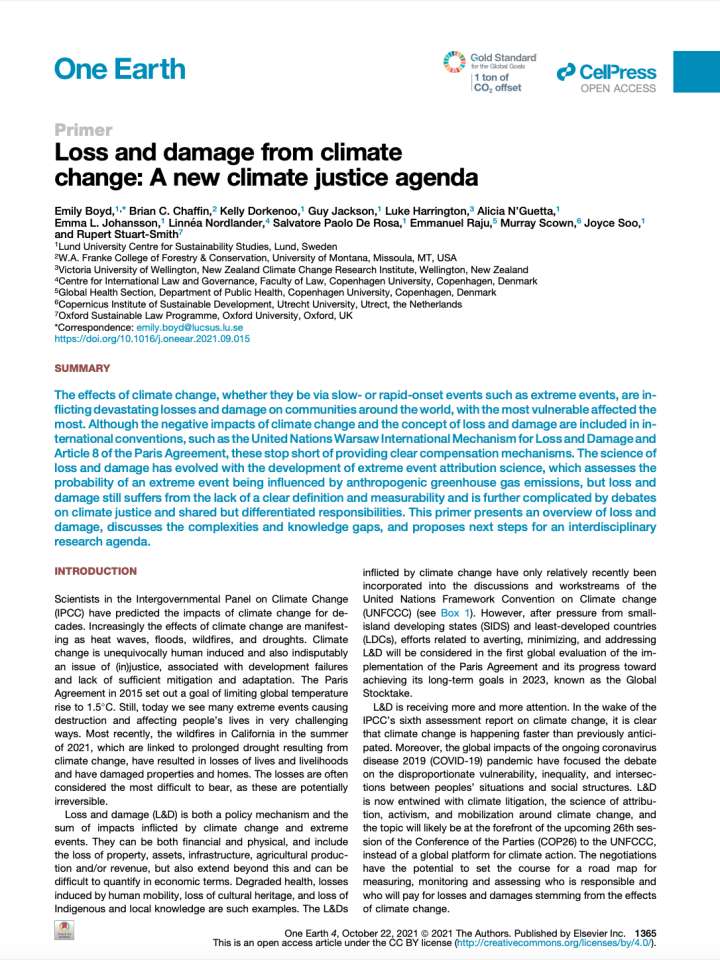Loss and damage from climate change: A new climate justice agenda
This primer presents an overview of loss and damage (L&D), discusses the complexities and knowledge gaps, and proposes next steps for an interdisciplinary research agenda. The effects of climate change, whether they be via slow- or rapid-onset events such as extreme events, are inflicting devastating losses and damage on communities around the world, with the most vulnerable affected the most. Although the negative impacts of climate change and the concept of loss and damage are included in international conventions, such as the United Nations Warsaw International Mechanism for Loss and Damage and Article 8 of the Paris Agreement, these stop short of providing clear compensation mechanisms. The science of loss and damage has evolved with the development of extreme event attribution science, which assesses the probability of an extreme event being influenced by anthropogenic greenhouse gas emissions, but loss and damage still suffers from the lack of a clear definition and measurability and is further complicated by debates on climate justice and shared but differentiated responsibilities.
The paper finds that in the wake of new knowledge on the physical effects, displacement, and social impacts of climate change, L&D has gained a more prominent role in scientific discourse, policy, and social justice debates. The interdisciplinary research community can help to fill the gaps identified in this article. Currently, there is a lack of knowledge on national-level financing and effective mechanisms for managing L&D. Further, understanding of the full extent of the impacts of climate change, particularly in the context of Non-economic L&D (NELD), remains limited and requires further study. NELD pull into focus the ethical and justice dimensions of climate change, where countries and peoples across the world are disproportionately affected, and their cultures and ways of life, meanings, and purposes are being severely affected.
Explore further
